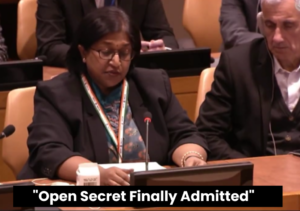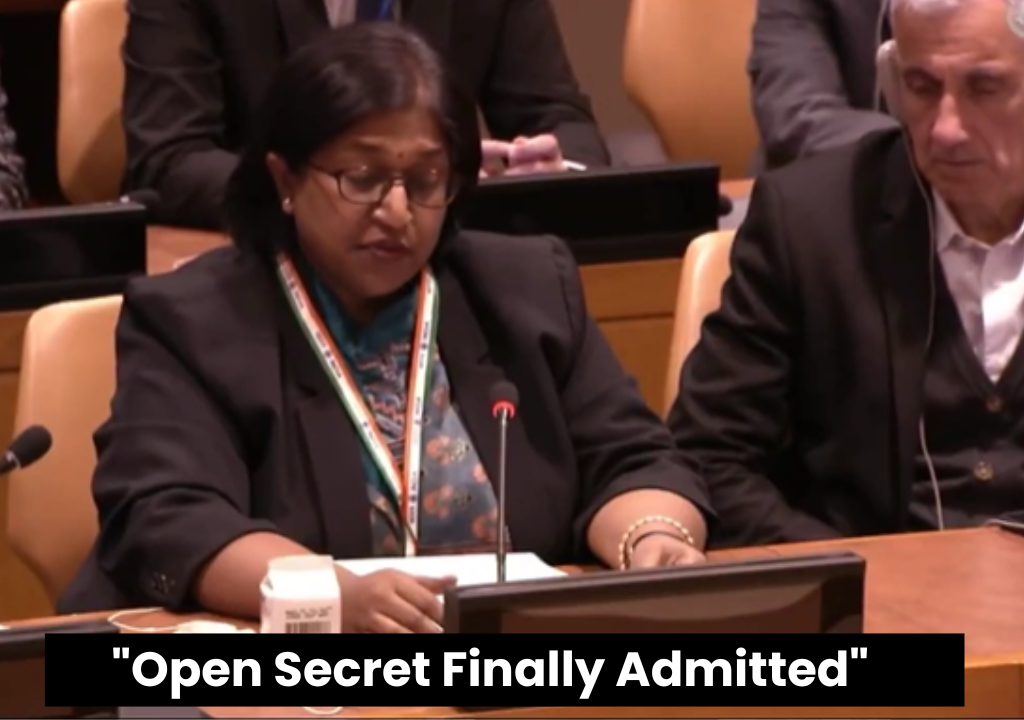In a scathing rebuttal at the United Nations, India slammed Pakistan over a Pakistani minister’s explosive confession admitting decades of supporting and funding terrorism. The intervention came in the wake of the Pahalgam terror attack in Jammu and Kashmir, where 26 tourists lost their lives — the deadliest attack since the 2008 Mumbai attacks.
Addressing the UN, India’s Deputy Permanent Representative, Ambassador Yojna Patel, referred to Pakistan’s Defence Minister Khwaja Asif‘s candid admission. In a recent interview, Asif acknowledged that Pakistan has actively supported terrorist organizations, not just in its region, but globally — a revelation India described as neither surprising nor new.
“The whole world has heard Pakistan’s Defence Minister confess to supporting, training, and funding terrorist groups. This open confession surprises no one and only exposes Pakistan as a rogue state fuelling global terrorism,” said Ambassador Patel.
Patel emphasized that the world can no longer afford to turn a blind eye to Pakistan’s role in fostering terrorism.
Pakistan’s Admission: A Turning Point
In his interview with Sky News, Khwaja Asif stated:
“We have been doing this dirty work for the US for the past three decades, including for the West and the UK.”
The statement drew sharp reactions globally, reinforcing India’s long-standing accusations of Pakistan’s double standards on terrorism.
India’s Message to the Global Community
Speaking during the launch of the Victims of Terrorism Association Network (VOTAN), Ambassador Patel not only condemned Pakistan but also thanked the global community for its “strong, unequivocal support” after the Pahalgam attack.
“The Pahalgam attack represents the largest number of civilian casualties since 26/11. Having been a victim of cross-border terrorism for decades, India understands the long-term scars such acts leave on victims and society,” Patel said.
She further reiterated the UN Security Council’s condemnation of terrorism in all its forms, stating that “acts of terror are criminal and unjustifiable, regardless of motivation.”

The Launch of VOTAN: A Step Forward
Praising the establishment of the Victims of Terrorism Association Network (VOTAN), Ambassador Patel said:
“Initiatives like VOTAN are vital to strengthen the global response to terrorism and to ensure that victims’ voices are heard and respected.”
VOTAN aims to provide victims with a platform for healing, advocacy, and global engagement against terrorism.
Links Suggested: US Intelligence Chief Backs PM Modi’s Fight Against Pahalgam Terror Attack
Diplomatic Fallout: India-Pakistan Ties Strained Further
In direct retaliation to the Pahalgam attack and Pakistan’s continued harbouring of terrorists, India suspended the Indus Water Treaty, cancelled Pakistani visas, and asked Pakistani visitors to leave India within days.
Pakistan, in turn, retaliated by suspending all bilateral agreements with India, including the historic Simla Agreement.
Conclusion
The recent developments mark a major escalation between the two nuclear-armed neighbours.
India’s strong stand at the UN and the international community’s growing acknowledgment of Pakistan’s complicity in terrorism could potentially shift the global narrative. As Ambassador Patel stressed, the world must act decisively — because ignoring terrorism anywhere endangers peace everywhere.

